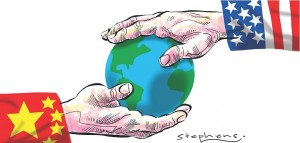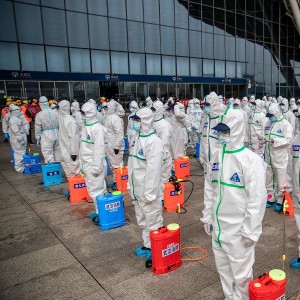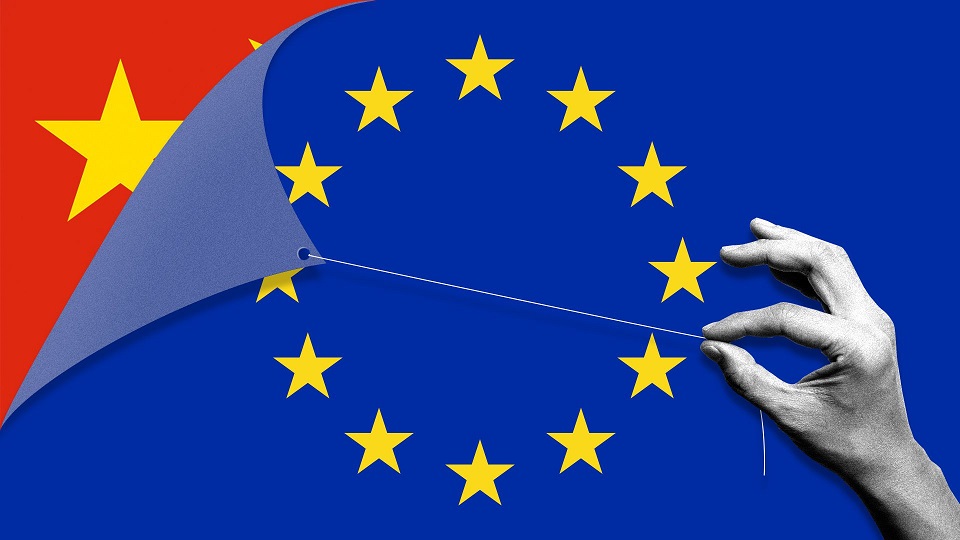Covid-19 Response
Will it accelerate the Shift in Power from the West to the East?
Athar Mansoor
Our century is witnessing a tectonic shift in global power and influence from the West to the East. In his book, “The New Asian Hemisphere: The Irresistible Shift of Global Power to the East,” Kishore Mahbubani, a former Dean and Professor in Practice of Public Policy at the Lee Kuan Yew School of Public Policy, Singapore, explains why Asia is rising, how it will alter the world, and why the West—even though it should celebrate Asia’s rise—will have great difficulties adjusting to these changes. He argues further that the rise of Asia will be good for the world as hundreds of millions of people will be rescued from the clutches of poverty. We have already seen a clear manifestation of his contention. China alone has been able to lift 800 million people out of poverty in the last three decades and is currently the second biggest economy of the world. The rise of China and India along with the continuing weight of Japan surely marks one of the greatest shifts in power from the West to the East.
The recent pandemic of Covid-19 and how the West and the East have responded to it provides an interesting case to delve deep into this thesis of shifting power put forward by public intellectuals like Kishore Mahbubani, Prag Khanna and Stephen Walt. As of mid May, the top industrialized economies of the West such as the United States, the United Kingdom, Italy, France and Germany, have not been able to control the spread, and death rates of the new-to-the-world disease. More than 2 million people have been infected in these five countries and approximately 175000 have died with more than seventy-five thousand passing away in the United States alone. In contrast, the combined number of people infected, by mid May, in China, Japan, South Korea, India, Hong Kong, Singapore, Thailand, Malaysia and Indonesia was around 230000 while the total number of deaths in these nine big economies of the East was well below the 10000 mark.
This comparison between the West and the East is startling as the outbreak of the highly disruptive and lethal Covid-19 occurred in the Chinese city of Wuhan. Asia in general, and East and Southeast Asia in particular, had much lesser response time at their disposal as compared to that the well-developed and advanced economies of the world had with their well-known sophisticated emergency response and medical systems. Still, these Asian countries have done remarkably well in controlling the spread of the infection and preventing the loss of precious lives. China has gained almost complete control over the virus and is also sending medical aid to many countries including the Western economic powerhouses. After steadying itself, China is sending assistance to others in the shape of doctors, masks and ventilators. This is a clear display of its soft power that may speed up a tipping of the geopolitical scales in its favour. Not only China, other countries, e.g. Singapore, Malaysia, South Korea and Australia, have also been praised for managing the pandemic relatively well. Meanwhile as of late February, the American public officials such as Larry Kudlow, the National Economic Council Director, were claiming that the United States had contained Covid-19. Since then we have seen an unmanageable spike in the number of confirmed cases and deaths in America. Maybe, the Americans declared the victory too soon.
These different developments across the two hemispheres clearly have the tendency to reshape the global order. In its recent issue, Foreign Affairs magazine interestingly noted that the global orders have a tendency to change gradually at first and then all at once. It further explains how in 1956, a botched intervention in the Suez laid bare the decay in British power, and marked the end of the United Kingdom’s reign as a global power. This leads me to argue that the American policymakers should recognize that if the United States does not rise to meet this extraordinary challenge, the coronavirus pandemic could turn the tables where China may supplant it as the new world leader. Renowned professors at the Belfer Center of Science and International Affairs of the Harvard Kennedy School also argue the same. They are of the view that Covid-19 will accelerate the shift in power from the West to the East and the main reason is the relatively slow and haphazard response to Covid-19 in Europe and America.
Summing up, I would say that Covid-19 is comparable to the fall of the Berlin Wall in Europe or the collapse of Lehman Brothers in the United States. It will shatter the world and will have wide-scale and far-ranging consequences we can only begin to imagine today.
However, one thing is certain. The disease has disrupted our lives to the scale of the Second World War. It has disturbed markets and exposed the competence or incompetence of governments. It will lead to permanent shifts in political and economic power in ways that will become apparent sooner than predicted by the intellectuals who argued that the East is rising.
 Jahangir's World Times First Comprehensive Magazine for students/teachers of competitive exams and general readers as well.
Jahangir's World Times First Comprehensive Magazine for students/teachers of competitive exams and general readers as well.




